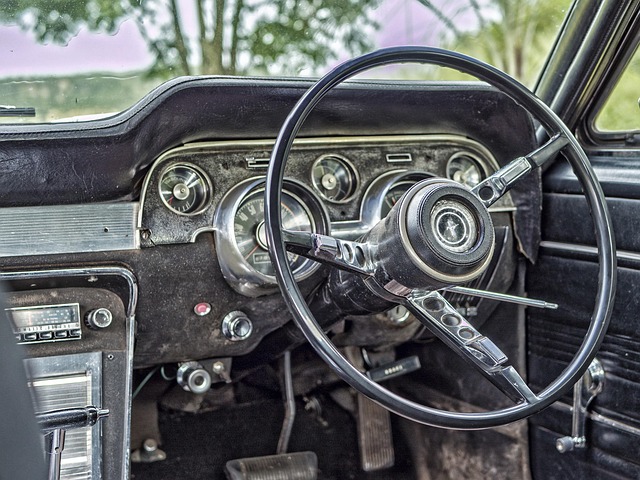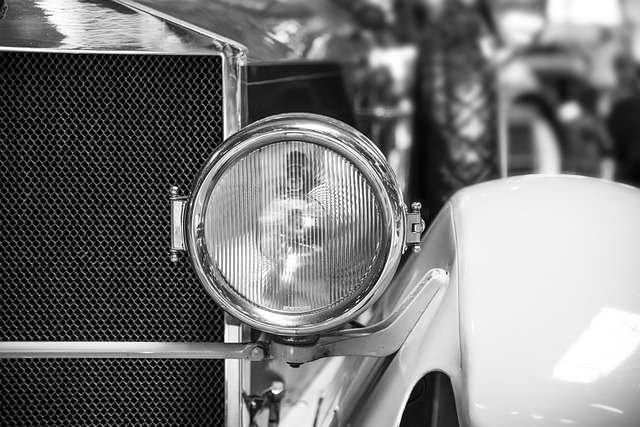California's vehicle registration process relies on certified VIN verifiers to ensure vehicle safety and compliance. These professionals meticulously inspect unique VINs, preventing fraud, theft, and unauthorized modifications. Using official databases and cross-referencing sources, they provide accurate vehicle history, vital for meeting DMV criteria and ensuring safer roads. Avoid relying solely on visual inspections or basic online searches; opt for a reliable VIN verifier for real-time, comprehensive verification.
“Uncovering the secrets to a smooth California vehicle registration process? This guide unveils the top 5 DMV guidelines for a successful VIN check, essential for any car owner. From understanding the state’s verification process to navigating eligibility criteria and avoiding common mistakes, this article is your go-to resource. Learn how to prepare the right documents and ensure a seamless experience with California’s vin verifier. Get ready to tackle VIN checks like a pro!”
- Understanding California's VIN Verification Process
- Eligibility Criteria for Vehicle Registration
- Documenting Necessary Information for VIN Check
- Common Mistakes to Avoid During Verification
Understanding California's VIN Verification Process

In California, the Vehicle Identification Number (VIN) verification process is a crucial step in ensuring vehicle safety and compliance with state regulations. The process involves a thorough inspection of the vehicle’s VIN, which serves as a unique identifier for each car. This verification is typically conducted by a certified vin verifier who checks for any discrepancies or alterations to the VIN, ensuring its integrity. The guidelines provided by the California Department of Motor Vehicles (DMV) outline the steps and standards that these verifiers must follow, guaranteeing a reliable and accurate checking system.
California’s VIN check is an essential part of vehicle registration and title issuance. It helps detect potential fraud, theft, or unauthorized modifications, safeguarding both consumers and law enforcement. By adhering to the DMV’s guidelines, certified vin verifiers play a vital role in maintaining the state’s automotive integrity, making the roads safer for all residents.
Eligibility Criteria for Vehicle Registration

In California, vehicles eligible for registration must meet specific criteria set by the Department of Motor Vehicles (DMV). One key requirement is a valid Vehicle Identification Number (VIN) check using a reliable vin verifier. This ensures that the vehicle’s history is accurate and free from any red flags, such as theft or fraudulent reporting. The VIN number serves as a unique identifier that allows the DMV to cross-reference the vehicle’s details against their databases.
To be eligible for registration, vehicles must also adhere to California’s age restrictions and safety standards. Older vehicles typically require additional inspections to guarantee roadworthiness. Furthermore, any imported vehicles must satisfy specific criteria regarding documentation and compliance with local regulations before they can be registered, ensuring a safe and reliable vehicle population on the state’s roads.
Documenting Necessary Information for VIN Check

When conducting a Vehicle Identification Number (VIN) check in California, proper documentation is key. Before initiating the process with a trusted VIN verifier, gather all essential details about the vehicle in question. This includes the full VIN, which typically consists of 17 characters, and accurate data such as the make, model, year, and any known modifications. Additionally, having access to the vehicle’s title documents, registration papers, or insurance records can streamline the verification process, ensuring a more efficient and accurate outcome.
A reliable vin verifier will require this information to cross-reference and validate the VIN against official databases, providing you with reliable and up-to-date insights about the vehicle’s history, including any accidents, mechanical issues, or outstanding recalls. Ensuring these details are correct and readily available saves time and effort for both the individual conducting the check and the service provider.
Common Mistakes to Avoid During Verification

When conducting a Vehicle Identification Number (VIN) check in California, it’s crucial to be aware of common mistakes that can lead to delays or inaccurate results. One frequent error is relying solely on visual inspection or basic online searches, which may not uncover all relevant information. A vin verifier should go beyond the surface level and utilize comprehensive databases that cross-reference the VIN with numerous reliable sources to ensure the vehicle’s history is complete and accurate.
Another mistake to avoid is neglecting to verify the vehicle’s status in real time. Records can change quickly, especially regarding ownership transfers, accident histories, or odometer rollbacks. A reputable vin verifier should have up-to-the-minute access to state records, allowing for a dynamic and current assessment of the vehicle’s condition. This ensures that any potential red flags are identified promptly, preventing buyers from making costly mistakes.
When conducting a California VIN check, adhering to DMV guidelines is essential for a smooth and successful verification process. By understanding eligibility criteria, documenting necessary information accurately, and avoiding common mistakes, you’ll ensure your vehicle’s registration remains up-to-date and valid. Utilize a trusted vin verifier to streamline these steps and maintain compliance with California’s stringent standards.



